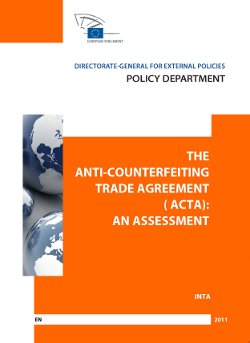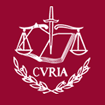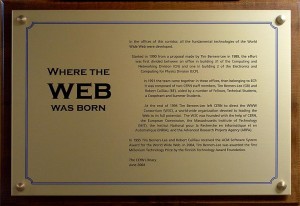I. RECENT CASE LAW
In the past two years we have seen a number of quite interesting decisions of the German Federal Court of Justice (Bundesgerichtshof; BGH) dealing with patent-eligibility of software-related inventions.
The first decision in the row was X ZB 22/07 („Steuerung für Untersuchungsmodalitäten“, “Control of Examination Modalities”) of 20 January 2009, in which the BGH analysed the circumstances under which an embedded software represents statutory subject-matter (see comments). In this decision the BGH sketched a two-step approach to examine whether or not an invention is sufficiently “technical” to qualify for patent eligibility:
- Is the subject-matter a “technical invention” as required by § 1 I PatG ?
- Does the invention fall under the exclusion of a “computer programs as such” as requited by § 1 III No. 3, IV PatG ?
An additional third step completes the examination scheme:
- Do the technical features render the invention novel and inventive over prior art?
 Recently the Directorate-General for External Policies of the Union (Directorate B – Policy Dept.) has published a study conveying an assessment of the Anti-Counterfeiting Trade Agreement (ACTA) which had been requested by the European Parliament’s Committee on International Trade (Contract No. EXPO/B/INTA/FWC/2009-01/Lot7/ 12 June 2011 PE 433.859 / Editorial closing date: 11July 2011). Of course, the study should be construed in a way that any opinions expressed in the document are the sole responsibility of the respective author(s) and do not necessarily represent the official position of the European Parliament. Political debates in coming fall will show the Parliament’s position.
Recently the Directorate-General for External Policies of the Union (Directorate B – Policy Dept.) has published a study conveying an assessment of the Anti-Counterfeiting Trade Agreement (ACTA) which had been requested by the European Parliament’s Committee on International Trade (Contract No. EXPO/B/INTA/FWC/2009-01/Lot7/ 12 June 2011 PE 433.859 / Editorial closing date: 11July 2011). Of course, the study should be construed in a way that any opinions expressed in the document are the sole responsibility of the respective author(s) and do not necessarily represent the official position of the European Parliament. Political debates in coming fall will show the Parliament’s position.
Named authors of the study are:
- Prof. Anselm Kamperman Sanders, Faculty of Law, Maastricht University
- Assistant Professor Dalindyebo Bafana Shabalala, Faculty of Law, Maastricht University
- PhD Researcher Anke Moerland; Faculty of Law, Maastricht University
- Dr. Meir Pugatch, IGIR Fellow, Director of Research, Stockholm Network, and Senior Lecturer, University of Haifa
- Paolo R. Vergano, IGIR Fellow and Partner at Fratini Vergano – European Lawyers
As set out in the study, ACTA was born out of the frustration of the major industrialised economies with progress on monitoring and norm-setting on the enforcement of intellectual property rights in multilateral fora. In the WTO Council for TRIPS (‘TRIPS Council’), Brazil, India and China have consistently blocked the inclusion of enforcement as a permanent agenda item. At the World Intellectual Property Organisation (WIPO), enforcement issues were relegated to a purely advisory committee. According to the study, ACTA can also be seen as an extension of the existing strategies of the main ACTA parties to include significant provisions on enforcement in their bilateral and regional free trade agreements (FTAs).ACTA was motivated by a desire to establish common provisions in international trade agreements containing rules on anti-counterfeiting. Within the EU the ACTA has been the source of some concerns regarding the non-transparent way it was negotiated and whether it meets to aims agreed by the European Parliament and Commission that it would be compatible with the existing acquis communautaire and the World Trade Organisation’s Trade Related intellectual Property rights (TRIPs) Agreement.
The study addresses two key questions regarding ACTA:
- Is it in conformity with the EU Acquis; and
- is it in conformity with the existing international obligations of the EU and its member states?
The question as to whether or not ACTA it in conformity with the EU acquis communautaire is of some political importance. Of course, the respective competent and empowered bodies of the EU are free to extend that acquis communautaire at any time if so decided. However, in view of general concerns of conflicts between ACTA and civil liberties and legitimate economic interests not based on IPRs, plus critics on the murky, secrecy-shrouded history of ACTA, there is a fierce public debate if ACTA should be ratified at all. In order to ease the formal adoption of ACTA, the EU Commission insists on their view that ACTA is merely declarative, i.e. it does not extend the acquis communautaire. If an expert opinion would supply reasons for rejecting this position, the Commission might well come into political trouble. This scenery appears to be the set prepared for the assessment now published.
The study finds:
Continue reading »
 Today, the Court of Justice of the European Union (CJEU) has published the final decision in Case C‑324/09 (L’Oréal SA et al. vs. eBay International AG et al.).
Today, the Court of Justice of the European Union (CJEU) has published the final decision in Case C‑324/09 (L’Oréal SA et al. vs. eBay International AG et al.).
From the Court decision we learn that L’Oréal is a manufacturer and supplier of perfumes, cosmetics and hair-care products. In the United Kingdom it is the proprietor of a number of national trade marks. It is also the proprietor of Community trade marks. L’Oréal operates a closed selective distribution network, in which authorised distributors are restrained from supplying products to other distributors.
Furthermore, eBay operates an electronic marketplace on which are displayed listings of goods offered for sale by persons who have registered for that purpose with eBay and have created a seller’s account with it. eBay charges a percentage fee on completed transactions. eBay enables prospective buyers to bid for items offered by sellers. It also allows items to be sold without an auction, and thus for a fixed price, by means of a system known as ‘Buy It Now’. Sellers can also set up online shops on eBay sites. An online shop lists all the items offered for sale by one seller at a given time. Sellers and buyers must accept eBay’s online-market user agreement. One of the terms of that agreement is a prohibition on selling counterfeit items and on infringing trade marks. In some cases eBay assists sellers in order to enhance their offers for sale, to set up online shops, to promote and increase their sales. It also advertises some of the products sold on its marketplace using search engine operators such as Google to trigger the display of advertisements.
According to the factual section of the Court decision, starting point was that on 22 May 2007, L’Oréal sent eBay a letter expressing its concerns about the widespread incidence of transactions infringing its intellectual property rights on eBay’s European websites. L’Oréal was not satisfied with the response it received and brought actions against eBay in various Member States, including an action before the High Court of Justice (England & Wales), Chancery Division.
L’Oréal’s action before the High Court of Justice sought a ruling, first, that eBay and the individual defendants are liable for sales of 17 items made by those individuals through the website www.ebay.co.uk, L’Oréal claiming that those sales infringed the rights conferred on it by, inter alia, the figurative Community trade mark including the words ‘Amor Amor’ and the national word mark ‘Lancôme’. The Court decision confirmed that it was common ground between L’Oréal and eBay that two of those 17 items are counterfeits of goods bearing L’Oréal trade marks.
The Court (Grand Chamber) today ruled:
Continue reading »
 After Poland took over EU Presidency from Hungary on July 01, 2011, the Council of the European Union has published on July 08 a Document 12661/11 titled Organisation of work on the patent reform under the Polish Presidency:
After Poland took over EU Presidency from Hungary on July 01, 2011, the Council of the European Union has published on July 08 a Document 12661/11 titled Organisation of work on the patent reform under the Polish Presidency:
The Presidency wishes to inform delegations of its decision to assign to the Friends of the Presidency Group the task of continuing the work on the following three files:
(a) Proposal for a Regulation of the European Parliament and the Council implementing enhanced cooperation in the area of the creation of unitary patent protection1 based on Article 118(1) TFEU;
(b) Proposal for a Council Regulation implementing enhanced cooperation in the area of the creation of unitary patent protection with regard to the applicable translation arrangements2 based on Article 118(2) TFEU;
(c) Draft agreement on a Unified Patent Court and draft Statute .
The Friends of the Presidency Group is invited to regularly report back to COREPER about the outcome of its discussions.
To ensure political steering of the discussions, the responsibility for negotiations should be put on IPR Attachés, who could be accompanied by experts in relevant fields as necessary, in a 1+1 format. The Friends of Presidency Group will not have interpretation.
The Presidency intends to organise the first meetings of the Friends of the Presidency Group on 11 and 18 July, to which invitations will be forwarded to the IPR Attachés.
Well, what the heck is that “Friends of the Presidency Group”? Although Google surely is your friend, it appears to be a bit difficult to obtain any information on this obscure body. However, the Slovakian EU Presidency of 2008 had published a hint:
Continue reading »
The k/s/n/h::law blog
Some of the patent attorneys of the KSNH law firm have joined their efforts to research what is going on in the various branches of IP law and practice in order to keep themselves, their clients as well as interested circles of the public up to date. This blog is intended to present results of such efforts to a wider public.
Blog Archives
- November 2013 (2)
- October 2013 (1)
- September 2013 (1)
- August 2013 (2)
- July 2013 (3)
- June 2013 (5)
- March 2013 (5)
- February 2013 (4)
- January 2013 (5)
- December 2012 (5)
- November 2012 (5)
- July 2012 (5)
- June 2012 (8)
- May 2012 (5)
- April 2012 (3)
- March 2012 (4)
- February 2012 (5)
- January 2012 (6)
- December 2011 (12)
- November 2011 (9)
- October 2011 (9)
- September 2011 (4)
- August 2011 (7)
- July 2011 (4)
- June 2011 (1)
Blog Categories
- business methods (6)
- EPC (7)
- EPO (12)
- EU law (92)
- ACTA (8)
- CJEU (4)
- Comitology (1)
- competition law (2)
- Enforcement (6)
- EU Unified Patent Court (62)
- FTA India (1)
- TFEU (2)
- Trade Marks (5)
- European Patent Law (37)
- German Patent ACt (PatG) (1)
- German patent law (5)
- Germany (6)
- Pirate Party (3)
- International Patent Law (4)
- PCT (2)
- IP politics (10)
- licenses (2)
- Litigation (5)
- Patentability (7)
- Patents (12)
- Piratenpartei (2)
- Software inventions (10)
- Uncategorized (9)
- Unitary Patent (24)
- US Patent Law (4)
Comments
- kelle on Germany: Copyright Protection More Easily Available For Works Of “Applied Arts”
- Time Limits & Deadlines in Draft UPCA RoP: Counting The Days - KSNH Law - Intangible.Me on Wiki Edition of Agreement on Unified Patent Court Agreement (UPCA)
- Time Limits & Deadlines in Draft UPCA RoP: Counting The Days | ksnh::law on Wiki Edition of Agreement on Unified Patent Court Agreement (UPCA)
- Wiki Edition of Agreement on Unified Patent Cou... on Wiki Edition of Agreement on Unified Patent Court Agreement (UPCA)
- European Commission Takes Next Step Towards Legalising Software Patents in Europe | Techrights on EU Commission publishes Proposal of amendend Brussels I Regulation for ensuring Enforcement of UPC Judgements
Blogroll
- 12:01 Tuesday
- America-Israel Patent Law
- Anticipate This!
- AwakenIP
- BlawgIT
- BLOG@IPJUR.COM
- BP/G Radio Intellectual Property Podcast
- Broken Symmetry
- Class 46
- Director's Forum: David Kappos' Public Blog
- Gray on Claims
- I/P UPDATES
- IAM Magazine Blog
- Intellectual Property Intelligence Blog
- IP Asset Maximizer Blog
- IP CloseUp
- IP Dragon
- IP Watch
- IP Watchdog
- IPBIZ
- ipeg
- IPKat
- ITC 337 Law Blog
- Just a Patent Examiner
- K's Law
- MISSION INTANGIBLE
- Patent Baristas
- Patent Circle
- Patent Docs
- Patently Rubbish
- PatentlyO
- Patents Post-Grant
- Reexamination Alert
- SPICY IP
- Tangible IP
- The 271 Patent Blog
- The Intangible Economy
- THE INVENT BLOG®
- Think IP Strategy
- Tufty the Cat
- Visae Patentes
The KSNH blogging landscape


This blog and the German-language sister blog k/s/n/h::jur link to the two popular and privately run blogs IPJur und VisaePatentes and continue their work and mission with a widened scope and under the aegis of our IP law firm.
ksnhlaw on Twitter
- No public Twitter messages.
 KSNH::JUR Feed (german)
KSNH::JUR Feed (german)- Ist Verschlüsselung passé? September 6, 2013Auf verschiedenen Feldern beruflicher Praxis ist dafür zu sorgen, dass Kommunikation vertraulich bleibt. Die trifft beispielsweise für Ärzte zu, aber auch für Anwälte, darunter auch Patentanwälte. Einer der zahlreichen Aspekte, die in diesem Zusammenhang eine Rolle spielen, ist die Technik, um die Vertraulichkeit beruflicher Kommunikation sicherzustellen. Wa […]
- EU-Einheitspatent: Demonstrativer Optimismus und Zahlenmystik allerorten – Naivität oder politische Beeinflussung? June 26, 2013Nach mehreren vergeblichen Anläufen zur Schaffung eines EU-weiten Patentsystems wurde 1973 als Kompromiss das Europäische Patentübereinkommen unterzeichnet, welches unabhängig von der seinerzeit noch EWG genannten Europäischen Union System zur zentralisierten Patenterteilung mit nachgeordnetem Einspruchsverfahren durch das Europäische Patentamt schuf. Wie wi […]
- Moderne Zeiten oder: DPMA und Patentgericht streiten über die elektronische Akte April 25, 2013Bekanntlich hat das Deutsche Patent- und Markenamt (DPMA) im Jahre 2013 mit der rein technischen Fertigstellung der Einrichtungen zur elektronischen Akteneinsicht einen wichtigen Meilenstein seines Überganges von der Papierakte zur “elektronischen Akte” erreicht. Im DPMA werden aber bereits seit dem 01. Juni 2011 Patente, Gebrauchsmuster, Topografien und erg […]
- Gutachten zu Forschung, Innovation und technologischer Leistungsfähigkeit Deutschlands 2013 March 11, 2013Unter dem Datum vom 28. Februar 2013 ist die Bundestags-Drucksache 17/12611 veröffentlicht worden Sie trägt den Titel Unterrichtung durch die Bundesregierung - Gutachten zu Forschung, Innovation und technologischer Leistungsfähigkeit Deutschlands 2013. Die Bundesregierung legt dem Deutschen Bundestag seit dem Jahr 2008 […]
- 3D-Printing: Zum Filesharing von 3D-Modelldaten February 25, 2013In meiner kleinen zuvor angekündigten Reihe über rechtliche Aspekte des 3D Printing komme ich heute auf die Frage zu sprechen, ob die Hersteller von Gerätschaften es hinnehmen müssen, wenn Ersatztreile davon – vom Brillengestell über Smartphone-Gehäuseteile bis hin zu Rastenmähermotor-Abdeckungen – gescannt und die daraus […]
- Ist Verschlüsselung passé? September 6, 2013





